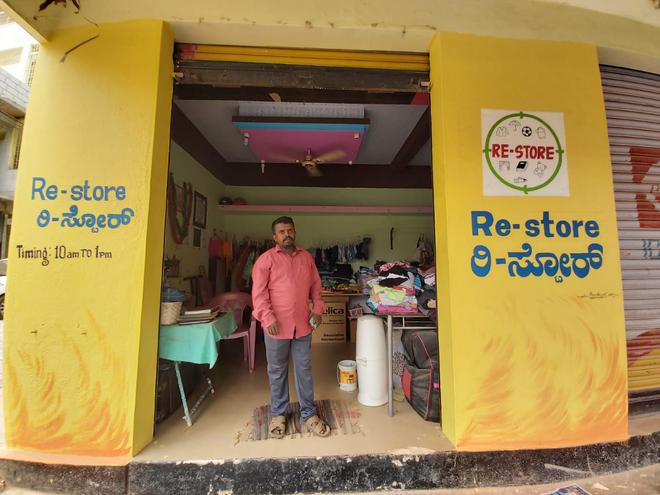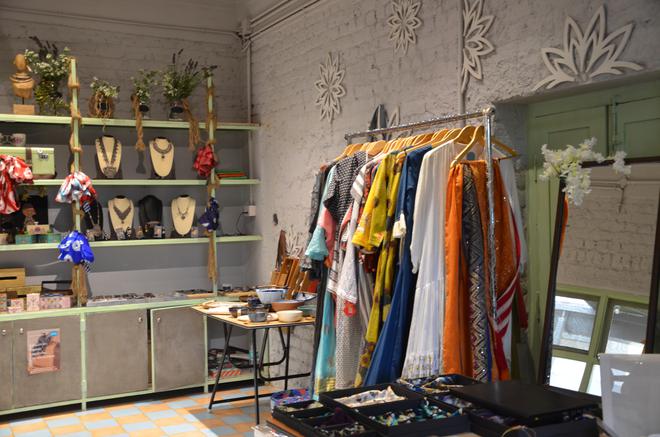Abinaya Kalyanasundaram, a freelance journalist, recently moved to Bengaluru. She had a limited budget to set up her 2BHK apartment. Fridge, furniture, bed, kitchen appliances... there were quite a few things she needed to buy. And getting everything brand new, she realised, would burn a hole in her wallet. So, as per her friend’s advice, she decided to buy secondhand. Abinaya signed up on a classifieds website, joined Facebook and WhatsApp groups and reached out to her friends on her social media pages. About a month later, her house is now fully furnished. It cost her ₹22,000, significantly lesser than if she had brought everything brand new.
More and more people like Abinaya, who move to Bengaluru for employment, education, or other purposes, do not prefer to invest in new goods. Secondhand goods provide flexibility, allowing them to acquire necessary items at lower prices and sell or pass them on when they eventually move to another location. And saving money is just one of the reasons, albeit an important one, for secondhand shopping; it is also sustainable for the environment and is fast becoming a trend, especially with clothing and home decor.
“My main reason for buying secondhand is the cost. I also like a particular aesthetic. For instance, I could have got only a plain plywood table with my budget. Thanks to buying secondhand, I could get an old teakwood table, which also looks nice,” says Abinaya.

Availability of platforms
The rise of online platforms and marketplaces dedicated to buying and selling secondhand goods has made it easier for people in Bengaluru to access a wide range of used items. Platforms including OLX, Quikr, and Facebook Marketplace provide convenient channels for individuals to connect and trade their secondhand belongings. Several environmentally conscious communities are sprouting on Whatsapp and Instagram, enabling secondhand shopping.
ByeBuy, a Whatsapp community founded by Mukesh Mishra, encourages people to buy less. The group, started this February, has over 800 members. Apart from buying and selling used goods, people in the group can also lend or borrow or exchange things. “Say, if someone needs a tent to go camping, they message on the group. If someone else has it, they can borrow and return it after using it. Or if someone has a bicycle they don’t use anymore, they can put it on the group and give it away for free or a nominal price,” says Mukesh. “The buying and selling are allowed only on weekends. We try to reduce buying as much as possible.”
Offline, too, more avenues for secondhand shopping are available compared to a decade ago. Flea markets, garage sales, and thrift stores are becoming more common in the city. Re-Store, started in 2017, has secondhand clothes, footwear, toys, and home décor items. “Over the last six years, we are seeing a significant surge in people who want to buy secondhand stuff. In fact, on our Instagram page, we get orders from smaller cities around Bengaluru like Udupi, etc.,” says Devyani Trivedi, the founder.
Nayana Premnath, who has been primarily shopping for pre-owned items since 2015 (80% of her household items, she claims, are used goods), also sees an increase in the prevalence of the secondhand culture. “Though Indian cities do not have a thrift store or flea market culture, a few are coming up in Bangalore. But online, there are definitely more people who are going for pre-owned items. This trend has been growing a lot, especially for clothes,” she says.

Style and sustainability
The thrift culture is as much of fashion as it is of function, especially for the younger generation. Most of Devyani’s clientele for clothes are Gen Zs. “I think they see it as an alternative to fast fashion. They can find some unique pieces of clothes for affordable prices. They are also aware it’s a sustainable option,” says Deyani.
Over the last few years, thrifting has gained traction as a major fashion trend, with many influencers and celebrities showcasing their thrift outfits and promoting sustainable fashion choices. The appeal of thrift fashion lies in its affordability, sustainability, and the opportunity to curate a unique and personal style.
All this augurs well for waste management companies like Saahas Zero Waste, which try to create a zero-waste world through a circular economy. “Our focus is always to elongate the life of the material we get,” says Astha Khubele, who works at Saahas. “We encourage people to reuse and repair before going to the recycling stage. And we also upcycle. So, we work with several groups, where we give them old materials and train them to make new products. So, these old materials get a new life.”
Mrudula Joshi, who runs Ullisu, an online platform that promotes minimising waste generation, reckons upcycling can solve the problem of people looking down on used items.
According to Mukesh, people’s mindset of pre-owned goods is slowly changing. “It’s just a question of affordability. Many members of my group are affluent enough to buy new things, but they choose not to.”







